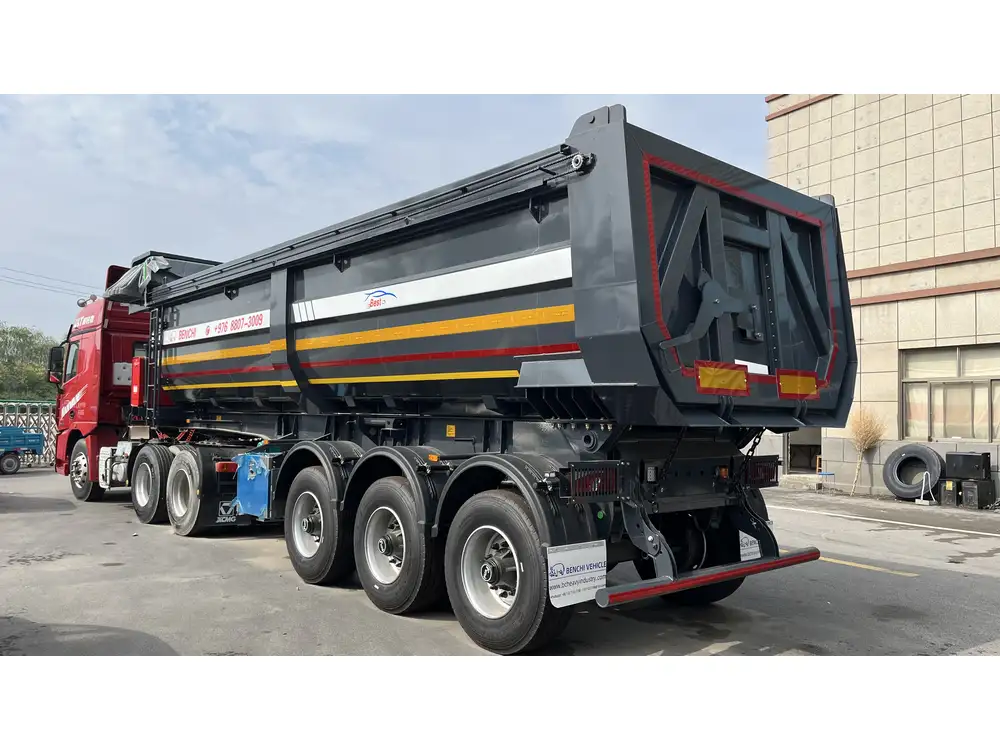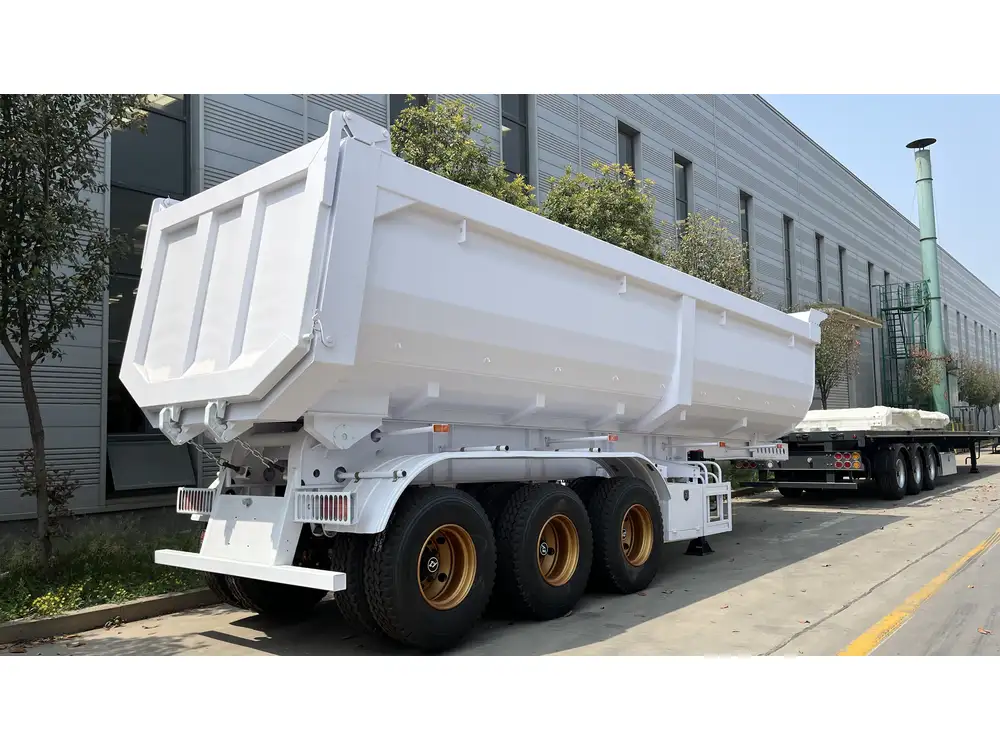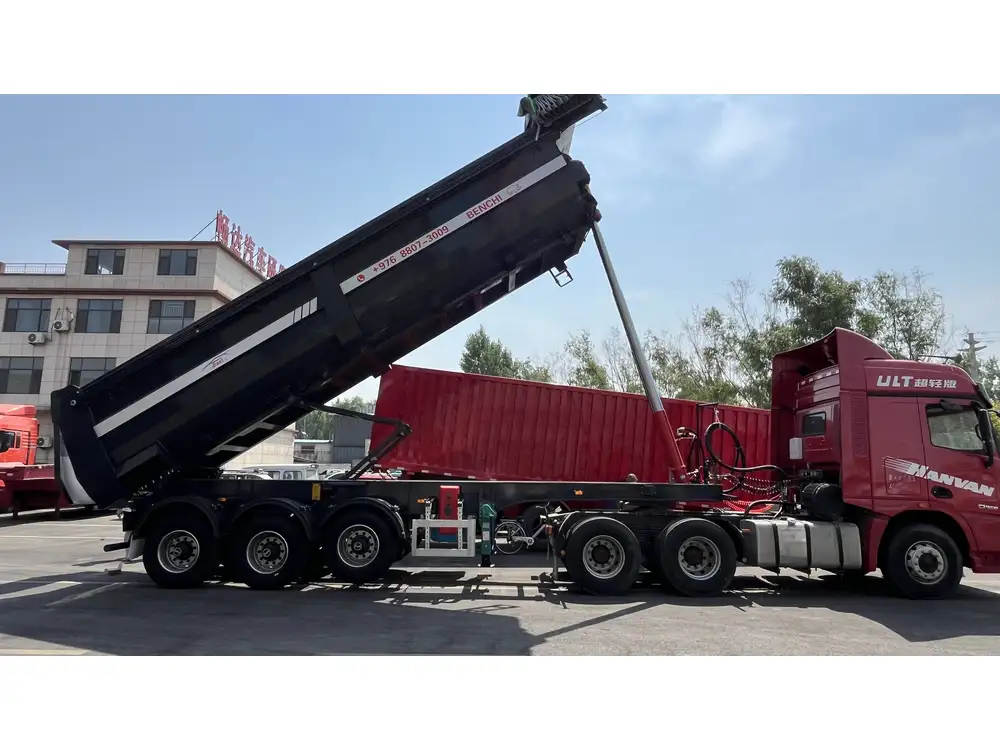Introduction to Semi-Trailer Mechanics
In the world of logistics and transportation, semi-trailers play a pivotal role in moving goods across long distances. The mechanics responsible for ensuring these vital vehicles operate smoothly are known as semi-trailer mechanics. This article explores the multifaceted responsibilities of a semi-trailer mechanic, the skills and tools required for the job, and the challenges faced in this dynamic field.
Understanding the Role of a Semi-Trailer Mechanic
A semi-trailer mechanic is a specialized technician focused on the maintenance and repair of semi-trailers. These professionals ensure that trailers, which are non-motorized vehicles towed by trucks, are in optimal working condition. Common types of semi-trailers include:
| Type of Semi-Trailer | Description |
|---|---|
| Flatbed | Open trailer used for transporting heavy loads and machinery. |
| Refrigerated | Insulated trailer equipped with temperature control for perishable goods. |
| Dry Van | Enclosed trailer for transporting non-perishable goods. |
| Tanker | Designed to transport liquids, including fuel, chemicals, and food products. |

Key Responsibilities
The duties of a semi-trailer mechanic encompass a wide range of activities:
- Routine Maintenance: Regular inspections and servicing to prevent breakdowns.
- Repairs: Diagnosing and fixing mechanical issues related to brakes, axles, and electrical systems.
- Component Replacement: Changing out parts like tires, lights, and suspension components.
- Custom Modifications: Making alterations based on specific hauling needs, including modifications for safety and efficiency.
- Welding and Fabrication: Repairing structural components using advanced welding techniques.
- Compliance Checks: Ensuring that all work done meets local and federal safety regulations.
Skills and Qualifications of a Semi-Trailer Mechanic
To excel in this role, mechanics require a blend of technical skills, knowledge, and personal attributes:
| Skill/Qualification | Description |
|---|---|
| Technical Proficiency | A deep understanding of mechanical systems, hydraulics, and electrical machinery. |
| Problem-Solving Abilities | The capacity to diagnose and troubleshoot complex mechanical issues efficiently. |
| Attention to Detail | Thoroughness in inspections and repairs to ensure safety and reliability. |
| Physical Stamina | The job often requires lifting heavy parts and working in awkward positions. |
| Certifications | Possession of relevant certifications, such as ASE (Automotive Service Excellence) or manufacturer-specific credentials. |
| Safety Awareness | Familiarity with OSHA standards and safety protocols to maintain a safe working environment. |
Tools of the Trade
Semi-trailer mechanics utilize various tools critical to their work. Here are some commonly used tools:
| Tool | Purpose |
|---|---|
| Wrenches and Sockets | Used for loosening or tightening bolts and nuts. |
| Diagnostic Software | Computer programs to analyze electronic systems and troubleshoot issues. |
| Air and Hand Tools | Pnuematic and manual tools for removing and installing parts. |
| Hydraulic Lifts | Equipment to elevate trailers for easier access during repairs. |
| Welder | Used for repairing and fabricating metal components. |
| Safety Gear | PPE including gloves, goggles, and protective clothing to ensure personal safety. |

Daily Duties and Workflow
1. Inspection and Assessment
A typical day for a semi-trailer mechanic starts with visual inspections of the trailer, identifying any obvious signs of wear or damage. This includes checking:
- Braking Systems: To ensure effective stopping power.
- Suspension Systems: For alignment and wear on bushings and springs.
- Tires: Examining tread wear and pressure levels.
- Lighting and Electrical Systems: Ensuring all lights and electrical components function correctly.
2. Diagnostic Procedures
Using sophisticated diagnostic tools, mechanics assess electronic systems, pinpointing issues that may not be visible during a standard inspection. Common electronic problems could involve:
- ABS (Anti-Lock Braking System) Fails
- Malfunctioning Sensors and Lights
- Electrical Short Circuits

3. Performing Repairs
Once issues are diagnosed, mechanics move on to perform repairs. This can vary significantly from changing out a faulty brake line to complete axle replacements—tasks that require a keen eye for detail and precision.
Common Repairs Include:
- Brake repairs or replacements
- Spring and air suspension adjustments
- Electrical system repair (wires, connectors, and panels)
- Welding of structural components that have corroded or cracked
The Importance of Preventative Maintenance
A core aspect of a semi-trailer mechanic’s job is advocating for preventative maintenance. Regular servicing can greatly reduce the potential for costly repairs and downtime. Some key services include:
| Service | Frequency |
|---|---|
| Brake Checks | Every 10,000 miles |
| Tire Rotations | Every 5,000 miles |
| Fluid Checks (Oil, Brake Fluid) | Monthly |
| Electrical System Inspections | Quarterly |
By following a systematic maintenance schedule, operators can ensure vehicles remain reliable and efficient, ultimately extending the lifespan of the semi-trailers.

Challenges Faced by Semi-Trailer Mechanics
Environmental Factors
Semi-trailer mechanics often work in diverse environments, from outdoor job sites exposed to varying weather conditions to climate-controlled workshop settings. Each setting presents unique challenges to repair and maintenance:
- Weather Effects: Rain, snow, and extreme temperatures can impact service quality and worker safety.
- Location Constraints: Accessing trailers that are stationed in difficult locations can complicate repairs.
Technological Advancements
The evolution of technology in the trucking industry means that semi-trailer mechanics must continuously update their skills. Modern trailers may incorporate sensors and electronic monitoring systems for improved efficiency and safety. Mechanics must stay abreast of these developments through continuous training.

Supply Chain Constraints
Part availability can impact the efficiency of repairs. Delays in parts can lead to prolonged downtimes, affecting delivery schedules. Knowledge of alternative suppliers and inventory management can help mitigate this issue.
Conclusion: The Unsung Heroes of the Logistics Industry
Semi-trailer mechanics serve a critical role in the logistics and transportation industry. Their specialized skills ensure that trailers are safe, efficient, and reliable, supporting an economy that relies heavily on freight transport. As technology advances and the demands of the industry evolve, these mechanics will continue to adapt, ensuring their vital contributions are recognized and sustained. With a keen understanding of their work, stakeholders in the transportation industry can better appreciate the significance of these skilled professionals.
In summary, a semi-trailer mechanic’s job encompasses much more than simple repairs; it involves a commitment to safety, efficiency, and excellence in the transportation sector.



